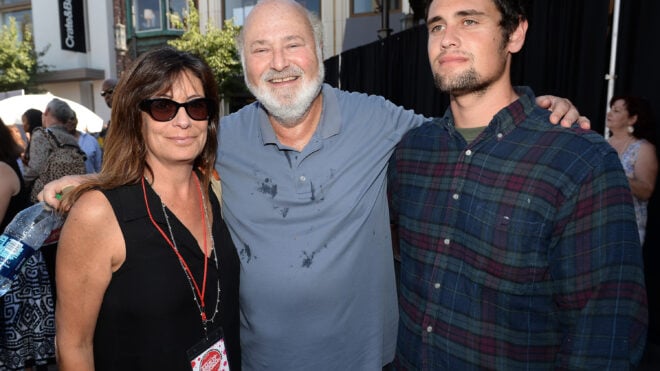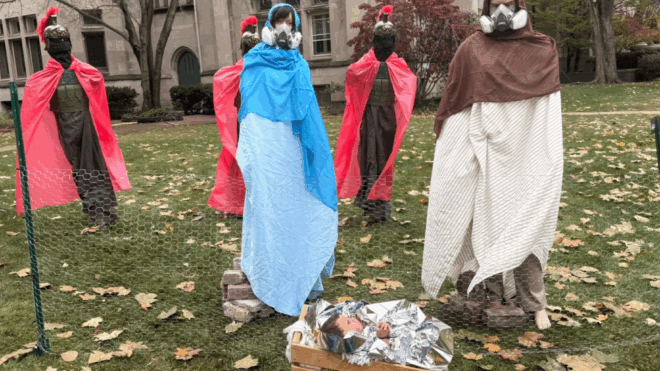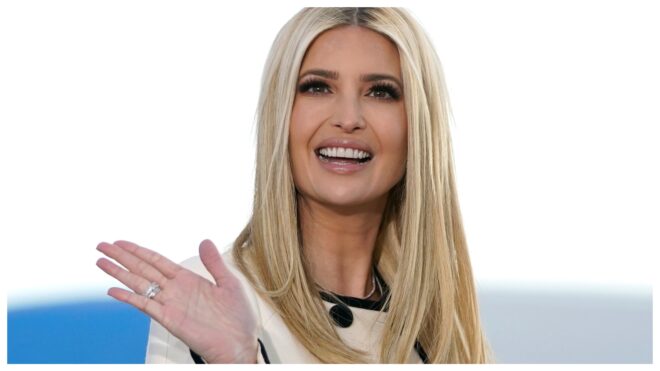During a season one episode of the show This Is Us, the character of Rebecca Pearson is at the pool with her three children, including her adopted son Randall. She's quietly struggling to figure out whether or not Randall needs sunscreen. While it's true that those with darker skin have naturally better protection against sun damage, sunscreen is still a must. That thought came after her struggle in trying to find Randall a barber.
But as this scene was a flashback, Rebecca couldn't pull up Google and figure it out. Rebecca, often portrayed as an excellent and loving mom, was visibly flustered. She wanted to make the right choices, but she didn't have the knowledge. For many parents who have adopted children of another race, the scene was quite relatable.
There are a lot of small issues that white families have when adopting Black children. While the children will truly get a great amount of love, there are subtle differences that parents need to know about. The sunscreen myth is one, but a bigger issue is hair care. In general, all of us have unique hairstyling needs. Some of us add extra conditioner, while others tend to avoid shampoo altogether. Textured hair comes with its own set of product needs to make sure it stays healthy and stylish.
In 2010, a woman named Tamekia Swint realized that this had the potential of being a true problem. Black hair is special, and it should be treated the proper way. Hair is also cultural, so it's something that everyone should know how to handle. She started a nonprofit solely for transracial adoptive parents so that Black children can keep this form of identity. Plus, it's always good to know how to manage different hair types.
Her nonprofit is called Styles 4 Kidz. It got its start after a friend of Tamekia's asked her for advice when it came to styling the hair of her three adopted children. Since Tamekia did such a good job, that mom started recommending Tamekia to other mothers who were looking for the same help. That's when Tamekia realized this was something truly needed.
Her services don't only help out transracial adoptive parents. She also offers them to children who are currently in residential facilities, foster care, and detention centers. Hair is such a big part of people's identity that it's a shame for anyone to lose out on knowledge of how to care for it.
"I would want to tell other transracial adoptive parents that it is your job to make your kid look decent when you're out of the house, and if you can't do that naturally on your own — and most of us can't — then it's your job to seek out help from somebody who can teach you," said someone who worked with Tamekia. It's important to realize that not having these skills naturally doesn't make you an unfit parent. But asking someone you trust can go a long way.
Tamekia has trained well over 1,000 families. As of now, she's given 120 workshops on textured hair care. There's even a salon that helps with styling, which is still running even during these trying times. Of course, they're doing everything they can to keep their staff and clients safe.
The organization was originally named Stylez for Girlz. But that — and many other aspects about the organization — changed as time went on. In 2013, the nonprofit added in-home hair care education and training to foster care kids, as well as special needs children who needed help in managing their manes. Soon, Tamekia realized that her clientele was more than just young women.
That's how the organization transformed into Styles 4 Kidz, which officially became the organization's new name in 2016. The slogan is one that'll stick with you — "Hair Care With Heart." Along with their lessons, the stylists hope to boost self-esteem and awareness.
Aside from founding the organization, Tamekia also serves as the executive director. But she's not taking all the credit. She has a strong team behind her, from salon managers to cosmetologists. Having professionals on board means that those who use the service will always stay on trend.
A mom named Sara gave a glowing testimonial about the team. "What an incredible learning experience to come and be taught how to properly care for my daughter's hair," she said. "I have never felt the confidence and excitement I do feel now to tackle caring for and styling her hair."
"This learning lesson will change my daily life and I am so very grateful to Styles for Kidz for their support, encouragement, and kindness to me and my little girl," she continued. Styles 4 Kidz also has an active volunteer program for those who want to get involved and make other families feel as welcomed as Sara. To support the organization, you can host your own fundraiser.
Or you can become a "care ambassador." Care ambassadors usually share the mission of the organization within their own communities. So if you know someone who's looking to know more about styling Black hair, you can refer them to Tamekia's wonderful organization.
Tamekia and her team have been featured on countless programs, from Good Morning America to The 700 Club. Those who've used her as a reference have credited her for making them better, more attentive mothers. That's incredibly high praise, yet very telling on how important of a skill this is.
"She made me a better mom, equipping me in a way I just wasn't before," said mom Sarah Jorgenson, who used to be worried that due to her lack of hair care knowledge, she wasn't protecting her daughter emotionally. "I don't think she realized that when she was showing me how to do a twist for the hundredth time."
"Hair is a big deal," Tamekia said to Good Morning America. "It can make the difference between feeling really good about yourself and bad about yourself." For children who are adopted, they might need some extra support to feel comfortable in their new surroundings. Being proud of their natural hair is a big part of it.
As Tamekia knows, hair is key to confidence. "Somebody's kid went to school today not feeling confident about how they look because of their hair," she said on Strahan and Sara, per Essence. "It's so important for our kids to feel good about themselves."




